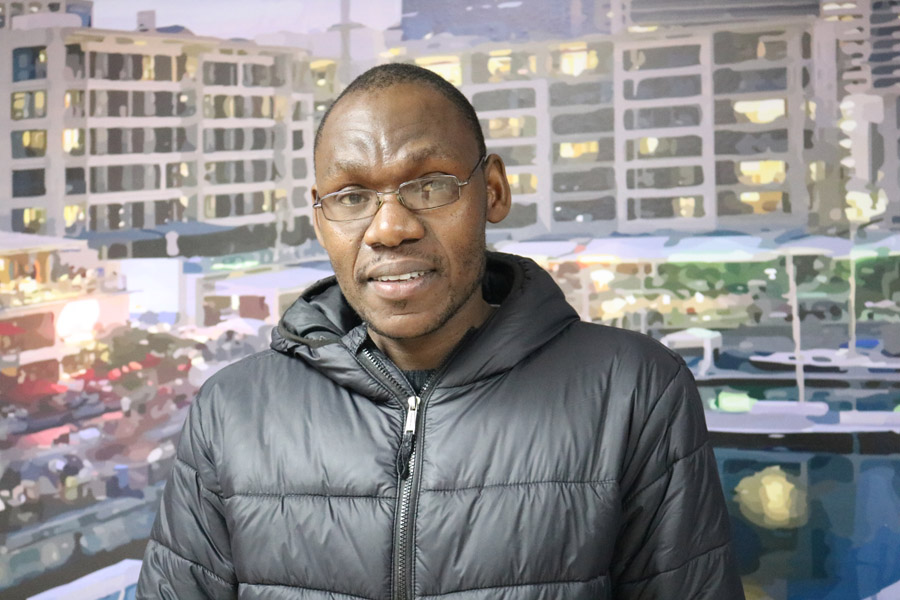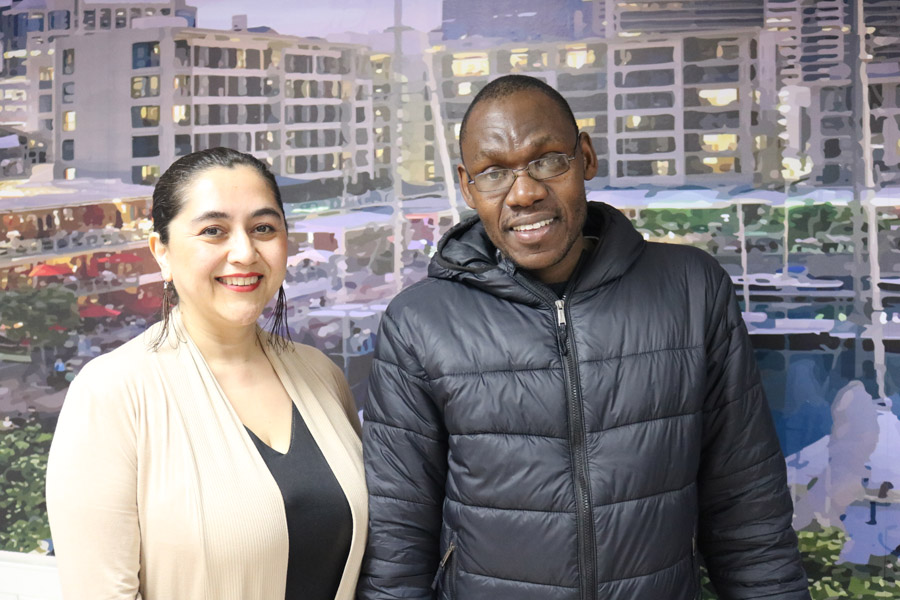|
His name is Alfredo Mabica and he is a postgraduate student in the Master’s Program in Education at the Universidad de La Frontera. After an intensive preparation at the Language Coordination Center, CODI-UFRO, he developed a very good command of the Spanish language and now he is waiting for the results of the international accreditation exam at the Instituto Cervantes in Spain. |
Chile, and especially Temuco, were unknown territories for Alfredo Mabica who comes from Mozambique in Africa and has been working as a chemistry teacher at a secondary school when he received the news that he was chosen from 15 applicants to receive the scholarship “Nelson Mandela”, which the Chilean government offers to strengthen the training of human capital through Master’s Programs at different universities. Faithful to his vocation as a teacher Alfredo arrived at the Universidad de La Frontera, thanks to the coordination of the International Affairs Office, in order to join the Master´s Program in Education, an experience the Mozambican student sees very positive because of the learning quality, and because of which it turned into a necessity to improve his Spanish language skills, although he already understood vaguely, since it is very similar to his native language, which is Portuguese. “At CODI they helped me a lot to improve my Spanish language skills. It was difficult at the beginning, but necessary for understanding the teachers and my postgraduate classmates,” Alfredo, who also went through a rough process of acclimatization in his first international experience, because of the cold climate and rain of the south, commented. Margot Godoy, director of the Language Coordination Center, which is part of the Vice-rectorate for Undergraduate Affairs, explained that this action that emanated from the collaborative link with the Academic Office for Graduate Studies permitted Alfredo to take part in an intensive Spanish program that was considered by the “Nelson Mandela” Scholarship with two hours of Spanish per day during the first semester, for being able to pass Spanish level B1, which is a requirement for international students at the UFRO. “It was rewarding to see him study. We saw the advances in him and the necessity of learning the Spanish language well for getting an international certificate. He got prepared for the DELE exam of the Instituto Cervantes at the beginning of October, being the first exchange student who takes this exam, and we are expecting good results,” Margot Godoy explained. While he is waiting for the results of the exam that accredits his Spanish language skills, a certificate provided by the Ministry of Education and Professional Training in Spain, Alfredo continues with his postgraduate studies at the UFRO with the objective of applying the contents he learns at this prestigious Chilean university in the future and, why not, of teaching the Mozambican students the Spanish language.
|






